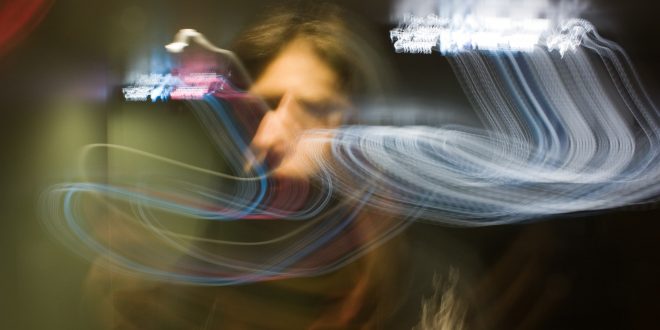Obsessive-compulsive disorder (OCD) is characterized by unwanted intrusive thoughts (obsessions) and repetitive behaviour like excessive checking and cleaning (compulsions). Cognitive theory proposes that everyone (or nearly everyone) has unwanted intrusive thoughts, but that those with OCD hold maladaptive beliefs that lead them to interpret such thoughts as catastrophic. As a result, they experience recurrent, distressing intrusive thoughts (obsessions) and engage in compulsions to prevent negative outcomes from occurring. In other words, cognitive theory suggests that maladaptive beliefs are central to the aetiology and maintenance of OCD symptoms (Rachman, 1997, 1998, 2002; Salkovskis, 1985, 1999).
Several belief domains have been shown to be involved in the development and maintenance of OCD. These include beliefs about responsibility (e.g., “I am the only one who can prevent bad things from happening”), uncertainty (e.g., “I can’t stand not knowing”), and perfectionism (e.g., “I will not accept anything less than the absolute best”). In fact, a comprehensive self-report measure (called the Obsessive Beliefs Questionnaire; OCCWG, 2005) has been developed to assess the extent to which clients, patients, and research participants endorse these maladaptive beliefs. Still, it appears that other beliefs, not captured by this measure, may also play a role in OCD.
Specifically, a number of individuals with OCD report concerns about losing control over their thoughts, behaviour, emotions, body, and bodily functions. For example, they might fear losing control of their mind and going crazy, or may fear acting on unwanted impulses and harming a loved one when they see kitchen knives. As such, we proposed that some individuals with OCD may hold negative beliefs about losing control and that these beliefs may contribute to the perpetuation of their symptoms. In support of this hypothesis, we demonstrated in a previous study that manipulating beliefs about losing control led to increased checking behaviour, a very common symptom in OCD (Gagné & Radomsky, 2017).
However, no comprehensive measure of beliefs about losing control has been developed. Self-report measures are very important to study relationships among psychological constructs in the laboratory and to monitor clients’ and patients’ progress in therapy. Therefore, in our latest study, we developed and validated the Beliefs About Losing Control Inventory (BALCI) in a sample of undergraduate students. This questionnaire aims to assess the extent to which one fears losing control, the meaning and perceived negative consequences of a loss of control, and beliefs about the importance of staying in control. We included items related to losing control over one’s thoughts/mind (e.g., “I am afraid of losing control of my thoughts”), behaviour/actions (e.g., “If I lose control over an urge or impulse, I will act on it even if I don’t want to”), emotions (e.g., “I’m afraid that I might not be able to keep my emotions in check”), and body/bodily functions (e.g., “I am afraid of getting hiccups or of sneezing because I might not be able to stop”).
Results showed that the BALCI is a reliable and valid questionnaire. A factor analysis revealed that its items fall under three broad themes: 1) beliefs about losing control over one’s thoughts, behaviour, and emotions; 2) beliefs about losing control over one’s body/bodily functions; and 3) beliefs about the importance of staying in control. Importantly, the BALCI was found to be associated with a measure of OCD symptoms, above and beyond the Obsessive Beliefs Questionnaire. Accordingly, beliefs about losing control may be a distinct belief domain that plays a unique role in OCD.
In the near future, we plan to refine the BALCI. We want to ensure that this measure is reliable and valid in a sample of participants diagnosed with OCD. In this way, clinicians will be able to use the BALCI confidently when tracking clients’ and patients’ progress in therapy. Moreover, we wish to add items that more strongly relate to other mental disorders. Indeed, beliefs about losing control likely impact other anxiety-related problems such as social anxiety disorder (e.g., “I am afraid of losing control and embarrassing myself in front of others”) and panic disorder (e.g., “I am afraid that I will not be able to stop my heart from racing out of control”), among others. Finally, we invite other researchers to use the BALCI to further examine beliefs about losing control in the laboratory and better understand its role within anxiety disorders.
Read the full paper: Radomsky, A. S. & Gagné, J.P. (in press). The development and validation of the Beliefs About Losing Control Inventory (BALCI). Cognitive Behaviour Therapy. doi.org/10.1080/16506073.2019.1614978
Photo by: Patrick Breen

Pictured: Adam S. Radomsky (left) & Jean-Philippe Gagné (right)
 Cognitive Behaviour Therapy A peer reviewed, multidisciplinary journal devoted to the application of behavioural and cognitive sciences to clinical psychology and psychotherapy.
Cognitive Behaviour Therapy A peer reviewed, multidisciplinary journal devoted to the application of behavioural and cognitive sciences to clinical psychology and psychotherapy.




